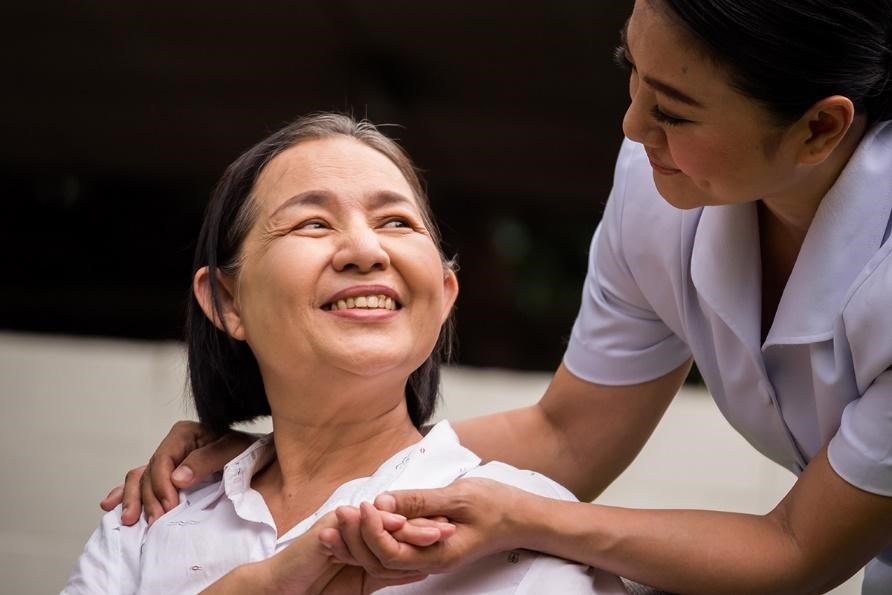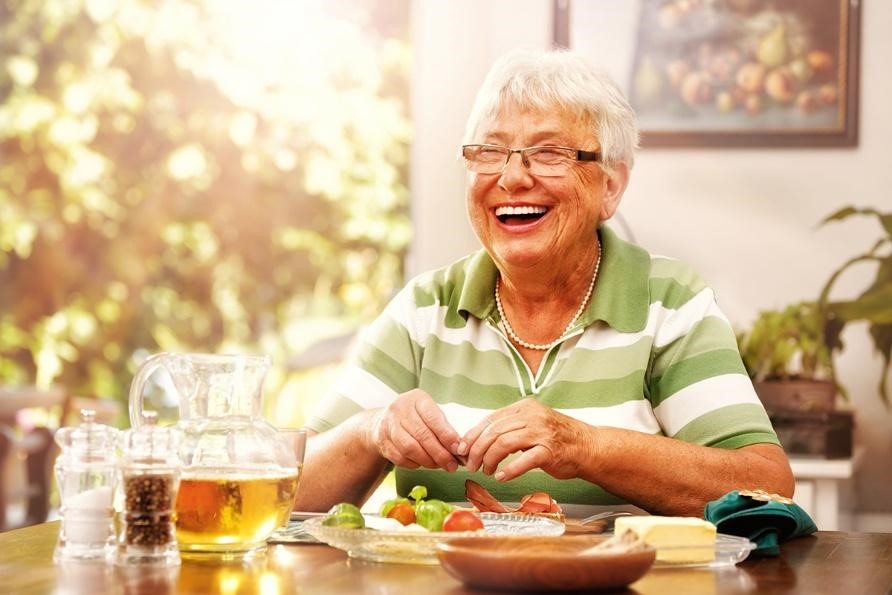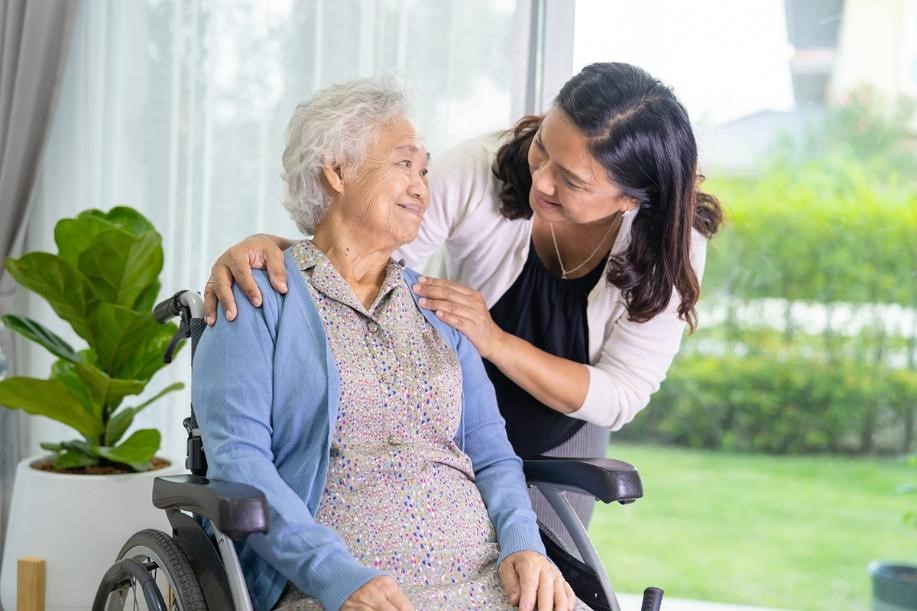Regular physical activity is essential for seniors to maintain their physical and mental health. Exercise helps reduce the risk of developing chronic conditions such as heart disease, diabetes and high blood pressure, while also helping to improve balance, coordination, bone strength and independence. Exercise provides mental stimulation, aids in relaxation and helps boost moods which can lead to improved quality of life. Additionally, exercise can be a great way to build relationships with other seniors in the community who share the same interests.
Seniors using Cleveland in-home care can still remain active with the help of their caregivers. Caregivers can assist seniors in developing an exercise plan tailored to their individual needs so that they can continue to stay physically active while staying at home. This can involve helping seniors with activities like walking, stretching and light weightlifting.
Caregivers may also be able to take seniors on outings or help them find activities they can do alone or with other members of the community. Exercise is key to maintaining health and mobility, so it’s important for seniors receiving in-home care from elder care providers to stay as active as possible.
Here are the best home health care activities to keep your mind and body healthy:
1. Regular exercise will assist with your energy levels
It’s no secret that regular exercise is essential for a healthy lifestyle. Sometimes it can be difficult to find the time or motivation to get your daily dose of physical activity, especially with older adults. Luckily, there are plenty of easy, low-impact exercises you can do at home that don’t require any special equipment or knowledge. From light aerobics and strength training to yoga and Pilates, getting your daily dose of physical activity has never been easier!
With regular exercise, you’ll experience improved moods and energy levels, higher metabolism, better sleep quality, stronger bones and muscles, reduced stress levels and more. So, make sure to get your daily dose of physical activity – your body will thank you for it!
2. Healthy eating habits can have wonderful benefits

Home health care starts with proper nutrition and eating a balanced diet. Eating right can help maintain physical and mental well-being as well as provide your body with the necessary vitamins, minerals and other important nutrients it needs to stay healthy.
When planning meals at home, make sure to include plenty of fruits, vegetables, lean proteins such as fish or chicken, and whole grains like quinoa, brown rice or barley. Eating these foods can supply you with vital amounts of fiber, vitamins and minerals that are necessary for good health. Try to limit processed foods and incorporate more nutritious options into your diet whenever possible.
Eating a balanced diet will not only help improve home health care but also ensure that you feel energized throughout the day!
3. Mental stimulation will lead to better mental health
Keeping your brain active and engaged is essential for a healthy lifestyle. With today’s technology-filled lives, it’s easy to get stuck in a rut of watching TV or scrolling through social media. Do yourself a favor and challenge your brain by engaging in activities that help keep it agile and strong. Puzzles such as Sudoku or crossword puzzles, reading books, learning a new language – all these activities can help keep your mind sharp and reduce the risk of age-related mental decline.
4. Quality sleep helps seniors with overall wellness
Sleep is one of the major pillars of home health care, and getting enough restful sleep every night is essential for both physical and mental well-being. Without an adequate amount of sleep, even the most committed home health routine will suffer. It’s recommended that adults get seven to eight hours of quality rest each night to maintain energy levels and keep their bodies functioning optimally.
Try to establish a consistent bedtime routine that works for you and stick to it as best you can; this will help your body recognize when it’s time to wind down for the day. Getting enough sleep should be a priority, as it’s key to feeling refreshed and ready to start another productive day.
Better sleep provides a number of benefits for seniors, including:
- Improved memory: Proper sleep helps reinforce memories and recall by increasing the amount of time spent in deep sleep mode.
- Reduced stress levels: Poor sleep can lead to increased stress levels and overwhelm, so getting enough shut-eye helps reduce this.
- Enhanced mood: Quality sleep reduces feelings of depression and anxiety while promoting a more positive mental outlook.
- Strengthened immune system: When we fail to get enough sleep, our bodies are unable to fight off illness as effectively, so good quality rest is essential for keeping us healthy.
- Boosted energy levels: After a good night’s rest, seniors will feel more energized, alert and able to maintain their daily activities without feeling overly tired or run down.
4. Socialization is a great personal experience
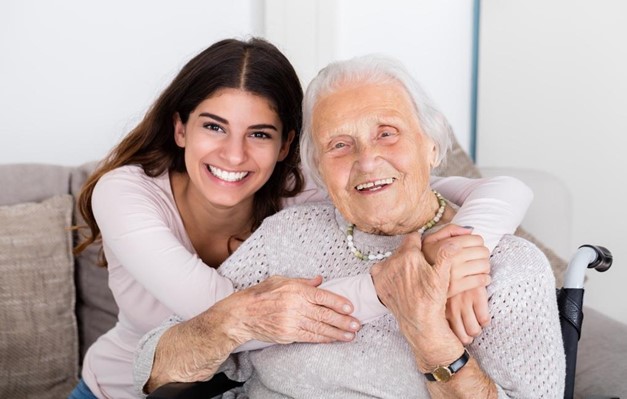
Staying connected with the people you care about is an important part of living a happier and healthier life. With the current pandemic still having an impact on our lives, spending time with friends and family in person may not always be possible. But that doesn’t mean staying in touch has to be difficult – thanks to modern technology, connecting with those we love is easy and accessible!
Video calls and social media are great tools for staying connected even when you’re stuck at home – use them to have virtual hangouts, play games or just catch up. Keeping a positive social support system helps us stay motivated and remain healthy, so don’t forget to reach out often.
Socialization delivers seniors the following:
- Enhanced mental health: Socialization can help seniors stay mentally stimulated and engaged which may help to delay or reduce the development of dementia and Alzheimer’s disease.
- Improved physical health: Socializing with others can help seniors stay physically active through activities like walking or sports, which reduces the risk for some chronic illnesses.
- Builds emotional stability: Connecting with people who share similar interests encourages seniors to develop positive relationships and a sense of community, helping them feel emotionally supported throughout the aging process.
- Promotes creativity: Participating in social activities gives seniors an opportunity to express their creative sides by engaging in art projects, storytelling or simply exploring different hobbies they enjoy.
- Increases self-confidence: Keeping up with current events and having conversations with others will give seniors more confidence in expressing their opinions and interacting with new people.
5. Stress reduction can help promote better mental health
Taking time for yourself is essential for your physical and mental well-being. Relaxation exercises like deep breathing or mindfulness can help you downshift from everyday life and slow down the pace to settle into a calmer state of mind.
Deep breathing exercises in particular are great for calming anxiety and reducing stress levels – by focusing on your breath, you can slowly bring yourself back to the present moment. And practices such as prayer and meditating on devotionals are excellent ways to cultivate and develop a sense of peace. So don’t forget to take time out just for yourself, and embrace relaxation techniques that work best for you.
6. Environmental awareness in the home

Creating a healthier home environment is essential for our overall health. One simple way to do this is by opening windows to let in fresh air, as stale and damp air can lead to respiratory problems in your own home. Another important step is taking into account the materials that make up your home – avoid polluting your home with toxins like cigarette smoke, chemical-based cleaning products and other airborne pollutants.
Finally, get rid of any clutter in your home – not only does it add to the chaos of everyday life, it can also trigger allergies or asthma due to the dust which accumulates over time. Taking these proactive steps with your family members and care team will ensure that you have a healthier, happier home environment!
7. Physical treatments are great for health conditions
Living with chronic pain or health conditions can be a difficult and draining experience, but physical treatments may provide some much-needed relief. Whether it’s massage therapy to reduce inflammation, physiotherapy for back pain or exercises for arthritis or osteoporosis – developing an individualized treatment plan that targets the root cause of your health condition is key to managing it effectively.
So, before you dive into an online search for medical advice, be sure to speak to your doctor or a skilled nursing professional about the available physical treatments that could help you alleviate existing health problems.
8. Quality ergonomics help with comfort
An important part of creating a comfortable and safe home environment is ensuring that your furniture is suitable for your body size, posture and age. This means taking the time to research and select the right pieces of furniture with ergonomic features such as adjustable height and back support that can help reduce the risk of injury and pain from prolonged sitting or standing. Family members and home health aides can assist with this.
When selecting chairs and other seating items, opt for those that offer optimal lumbar support for your spine. Additionally, look for mattresses with adjustable firmness levels to meet your individual sleep needs. And when it comes to desks and other standing station items, make sure you can adjust them to suit your height and posture.
Making sure your furniture is suitable for your body size, posture and age will help you better manage any existing aches or pains while also helping protect you from potential future injuries or strains.
9. Stretch your body with gentle stretching poses and breathing exercises
As mentioned above, stretching can be a great form of self-care and is an excellent way to relax and reconnect with your body. Engaging in gentle stretching exercises and incorporating deep breathing techniques can help to reduce stress and improve balance, coordination and flexibility. Proper stretching exercises can also build strength, help improve posture and reduce tension in the body.
Start your exercises with simple poses such as mountain pose, chair pose, tree pose or cat/cow stretch. These are all relatively easy poses that engage the whole body while promoting relaxation. As you become more comfortable with the poses, you can add more challenging positions including triangle pose, warrior one and two or boat pose. Moving slowly through each posture will allow your mind to disengage from daily worries as well as help you stay present in the moment.
Once you have moved through some of the basic positions, turn your attention to your breath for even greater relaxation benefits. Take a few moments just focusing on each inhale and exhale – feel the air fill up your lungs before releasing it slowly back out again into the world.
With each breath, try to let go of any unnecessary thoughts or stresses that may be lingering in your mind so you can fully enjoy this moment for yourself!
10. Spend some time in the garden or take a nature walk to appreciate the beauty of the outdoors
Connecting with nature through activities such as gardening or walking outdoors can be an incredibly therapeutic experience. While gardening, try to get lost in the beauty of nature as you admire vibrant colors and diverse plants. Take notice of different smells and take deep breaths of fresh air – feel free to pick some flowers or take it a step further and tend to your own vegetable patch while you’re at it!
If you prefer a leisurely stroll, choose a peaceful location like a local park or lakeside trail. Engage in mindful activities such as birdwatching or observing how light reflects across the water. A mindful walk alone, with a family member, friends or a companion care professional will give your mind and body time to pause and reset. Open up your senses for a more immersive experience – listen closely to birdsong, feel the sun’s warmth on your skin, breathe deeply and enjoy the beauty that is all around you!
11. Use self-care to support wellbeing
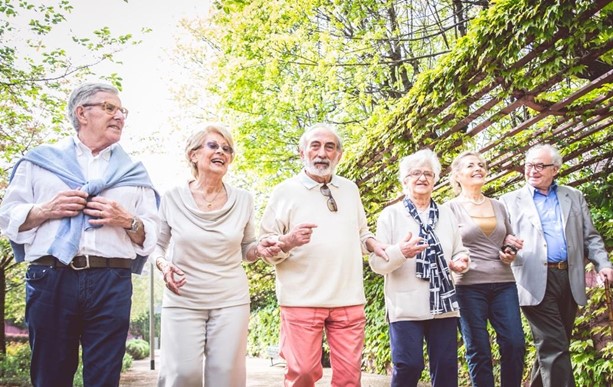
We must remember to take care of ourselves, both physically and mentally. One way to practice self-care is by indulging in a spa day at home. Face masks, foot soaks and body scrubs are the perfect way to relax and refresh. A hot bath with calming aromatherapy oils can be transformational, helping to reduce stress and fatigue. And if you’re feeling extra fancy, add in a sheet mask or hair treatment!
In-home care can be an excellent option for seniors who need extra support to remain active and independent. With the right personal care provider, in-home care can assist with everyday tasks such as bathing, light housekeeping, dressing, exercise, enjoying leisure activities and companionship. In-home care providers can also offer advice on safety products and resources that may be of benefit to older adults – such as grab bars, walkers or wheelchairs – so that they can go about their daily routines with ease. With the help of home care agencies like Cherished Companions, it is possible for seniors to stay active and engaged within the comfort of their own homes.
If you and your family members are looking for an in-home care team in the Cleveland area, then try to find one that will encourage them to remain active as part of their services.
For further questions or to inquire about having your loved one utilize our services, contact Cherished Companions today on our website or call (440) 484-5390.

